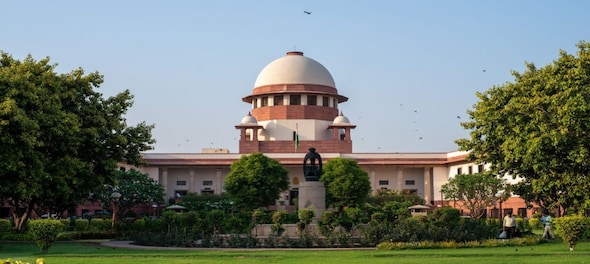
A five-judge Constitution Bench of the Supreme Court led by Chief Justice of India DY Chandrachud, on October 31, will start hearing a batch of petitions challenging the electoral bonds scheme.
The Constitution Bench comprises CJI Chandrachud and Justices Sanjiv Khanna, JB Pardiwala, BR Gavai and Manoj Misra, according to the cause list published on the Supreme Court website.
According to Live Law, on October 16, a three-judge bench headed by CJI Chandrachud and comprising Justices JB Pardiwala and Manoj Mishra referred the matter to a five-judge Constitution Bench. The decision to escalate the case was made “in view of the importance of the issue raised”.
The case centres on a series of petitions contesting the amendments introduced in the Finance Act of 2017, which facilitated the implementation of the anonymous electoral bonds scheme. The Finance Act 2017 made amendments to several key Acts, including the Reserve Bank of India Act, Companies Act, Income Tax Act, Representation of Peoples Act, and Foreign Contributions Regulations Act, to pave the way for funding to political parties through electoral bonds.
What are electoral bonds?
Electoral bonds, akin to promissory notes, are payable to the bearer on demand and free of interest. These bonds, available in denominations of ₹1,000, ₹10,000, ₹1 lakh, and ₹1 crore, can be purchased by any Indian citizen or body corporate. The scheme allows donors to contribute anonymously to a political party of their choice. Donors can purchase these bonds through a know-your-customer (KYC) compliant account. The political parties can redeem them within 15 days of receiving the donation.
Controversy surrounding political funding and disclosure
The contentious issue arises from the lack of disclosure regarding the source of these bonds to the Election Commission of India (ECI). Political parties are not obliged to reveal the origin of these donations. Despite concerns raised by various quarters, including the ECI, the scheme has been in operation since its introduction through the Finance Act, of 2016 and subsequent amendments in 2017.
In 2019, the Election Commission of India (ECI) expressed concerns about the lack of transparency resulting from electoral bonds and the removal of the cap on corporate funding. The ECI stated that these changes, made through the Finance Act of 2016, might enable unrestricted foreign funding for Indian political parties, potentially leading to undue influence in policymaking.
Senior advocate Rakesh Dwivedi, representing the ECI, informed the Supreme Court in 2019 that the Bharatiya Janata Party (BJP) received ₹997 crore and ₹990 crore in donations via electoral bonds in 2016–17 and 2017–18, respectively, significantly more than the Indian National Congress (INC) during the same period, reported The Leaflet.
In April 2019, the Supreme Court issued an interim order mandating all political parties to disclose details of donors who contributed through electoral bonds, along with the amounts received, to the ECI in sealed envelopes.
On March 26, 2021, a Supreme Court Bench, led by the then Chief Justice of India, SA Bobde, declined to put a stay on the electoral bond scheme.
Addressing concerns raised by petitioners about potential foreign corporate influence, the court cited Clause 3 of the scheme, which specified that bonds could only be purchased by Indian citizens or entities incorporated or established in India.
(Edited by : Sudarsanan Mani)
Check out our in-depth Market Coverage, Business News & get real-time Stock Market Updates on CNBC-TV18. Also, Watch our channels CNBC-TV18, CNBC Awaaz and CNBC Bajar Live on-the-go!


Rapido offers free rides to voters to polling stations on May 13 in Hyderabad, 3 other cities
May 6, 2024 5:49 PM
Lok Sabha elections 2024: Seats to date, all you need to know about third phase of voting
May 6, 2024 4:49 PM
Concerns on low voter turnout a "myth"; absolute number of voters correct way to analyse: Report
May 6, 2024 2:57 PM
Haryana Lok Sabha elections 2024: A look at JJP candidates
May 6, 2024 2:26 PM

